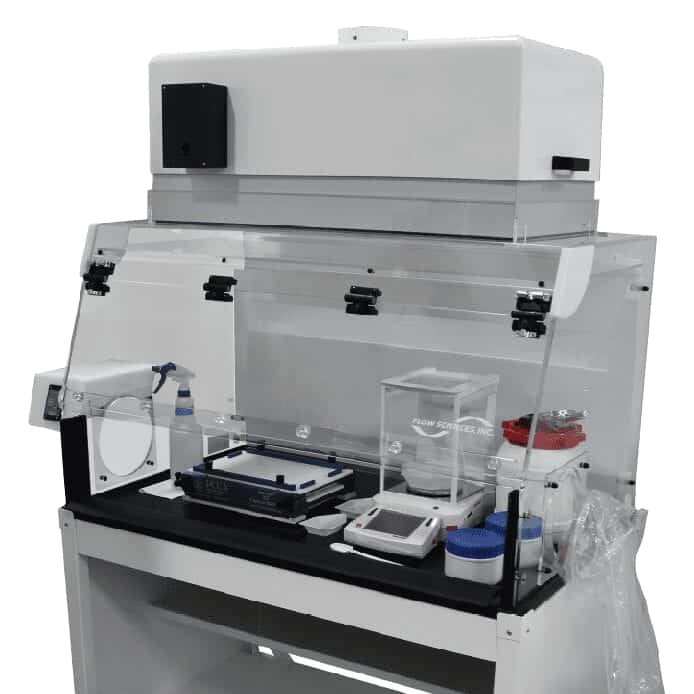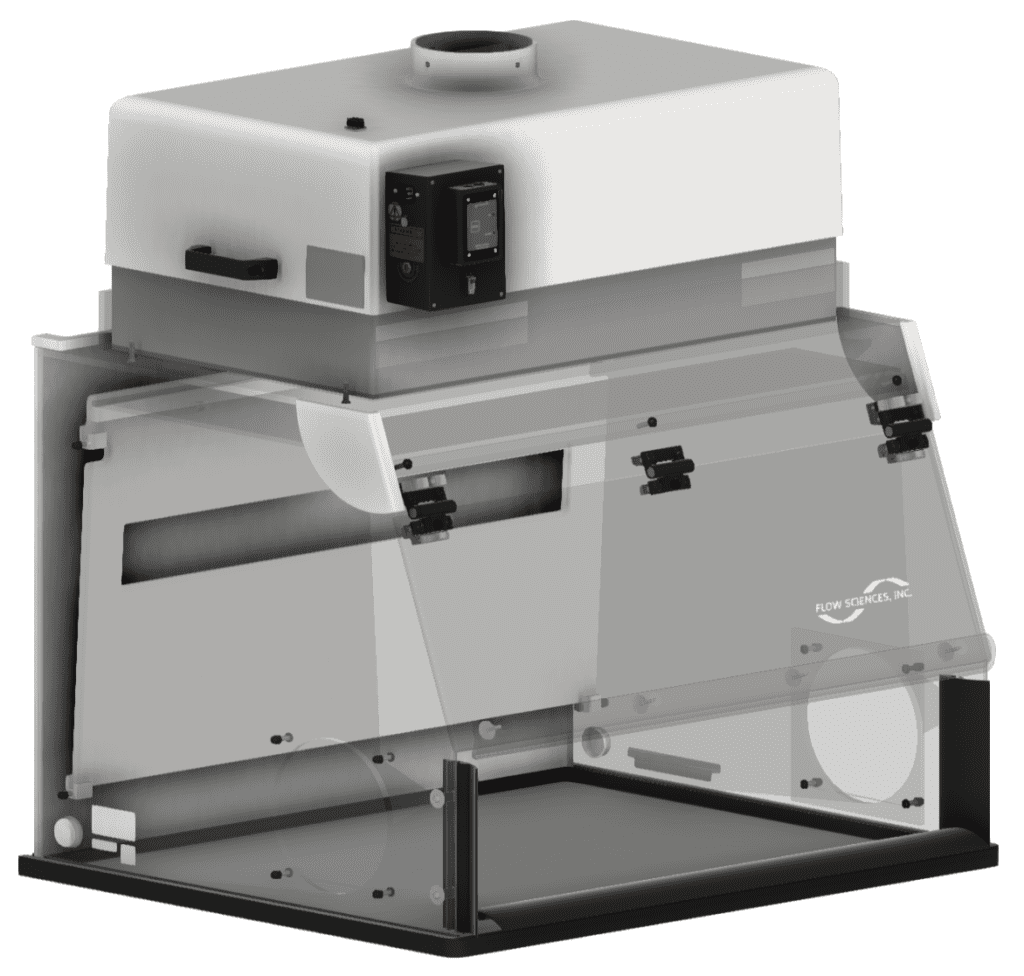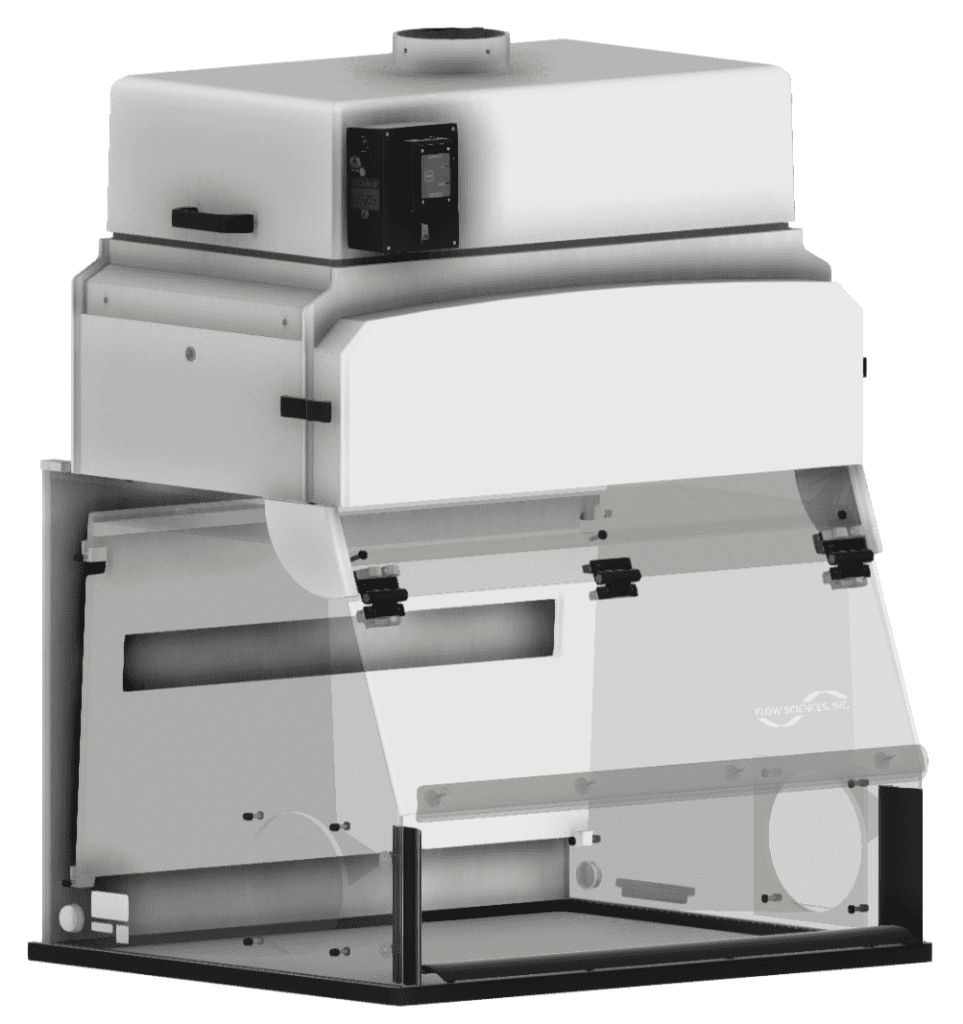Ensuring compliance with USP <800> standards is crucial for the safety and well-being of both personnel and the environment when handling hazardous drugs. Flow Sciences, Inc. leads the way with innovative solutions like Containment Primary Engineering Controls (C-PEC) and Containment Secondary Engineering Controls (C-SEC), designed to mitigate exposure and ensure controlled handling of hazardous drugs. With a range of expertly engineered products, including High-Efficiency Particulate Air (HEPA) filters, vented enclosures, and safety cabinets, Flow Sciences is dedicated to providing industry-leading containment systems that not only comply with but exceed USP <800> requirements
USP <800> Explained
Terms Applicable to USP <800> Standards:
c-pec
Containment Primary Engineering Control
A ventilated device designed to minimize worker and environmental hazardous drug exposure when directly handling hazardous drugs.
c-Sec
Containment Secondary Engineering Control
The designated room where the C-PEC is situated. It ensures the environment around the C-PEC remains controlled and secure.
HD
Hazardous Drugs
Pertains to the toxic powder or active pharmaceutical ingredient that is handled within specific containment measures, ensuring safety for both workers and the environment.
HEPA
High-Efficiency Particulate Air Filter
HEPA Filters are designed to capture and remove airborne particles, with at least 99.995% effectiveness.
ACPH
Air Changes Per Hour
Complete air replacements that occur within a Containment Secondary Engineering Control (C-SEC).
CVE
Contained Vented Enclosure
A specialized, vented containment enclosure ensures both personnel and environmental protection.
Class I BSC
Biological Safety Cabinet
A Class I BSC is a containment enclosure that safeguards both personnel and the environment.
CAI
Compounding Aseptic Isolator
Provides aseptic conditions while preparing sterile medications, ensuring personnel safety.
CACI
Compounding Aseptic Containment Isolator
Provides sealed aseptic conditions for sterile compounding, ensuring personnel AND product safety.
Requirements for Non-Sterile HazarDous Compounding
Ensuring Safe & Effective Practices
At Flow Sciences, we recognize the significance of adhering to the requirements in HD compounding. Our expertise and comprehensive range of solutions empower you to achieve the utmost safety, compliance, and efficiency. Count on us to be your partner in upholding the highest standards in hazardous drug handling.
C-PEC ventilation requirements depend on the application. It can be externally vented (preferred) or redundant HEPA-filtered in series. Examples: CVE, Class I BSC, CAI or CACI
C-SEC MUST be externally vented AND have at least 12 ACPH. Externally vented, ≥ 12 ACPH, Negative pressure between 0.01 and 0.03 inches of water column relative to adjacent areas. Requirements vary based on application.
Variety of C-PEC Options: Flow Sciences offers an array of C-PEC solutions, including our time-tested CVE, Class I Bio-Safety Cabinets, and Compounding Aseptic Containment Isolators. Among these, our CVE paired with Single or Dual HEPA filtration units (dependent on application) stands out as an efficient solution to USP <800> compliance.

Engineered Solutions
Recommended for USP <800> Applications

SINGLE-HEPA,
TOP MOUNT
NON-HAZARDOUS, NON-STERILE
Flow Sciences Contained Vented Enclosure with Single 4” HEPA filter and fan.
- Safe powder handling of hazardous drugs for personnel protection and reproducibility in sensitive application
- THIMBLE CONNECTION and VENT KIT required to connect CVE to the house exhaust system
- Stable airflow and NO VIBRATION on the work surface

DUAL-HEPA
TOP MOUNT
HAZARDOUS, NON-STERILE
Flow Sciences Contained Vented Enclosure with Bag-In / Bag-Out Dual 4” HEPA filters and fan.
• RECIRCULATE into your lab to save money by requiring less make-up air and not venting out conditioned air
• FLEXIBILITY with placement in lab. Recirculate and move enclosure without moving house exhaust drops.
• Stable airflow and NO VIBRATION on the work surface

